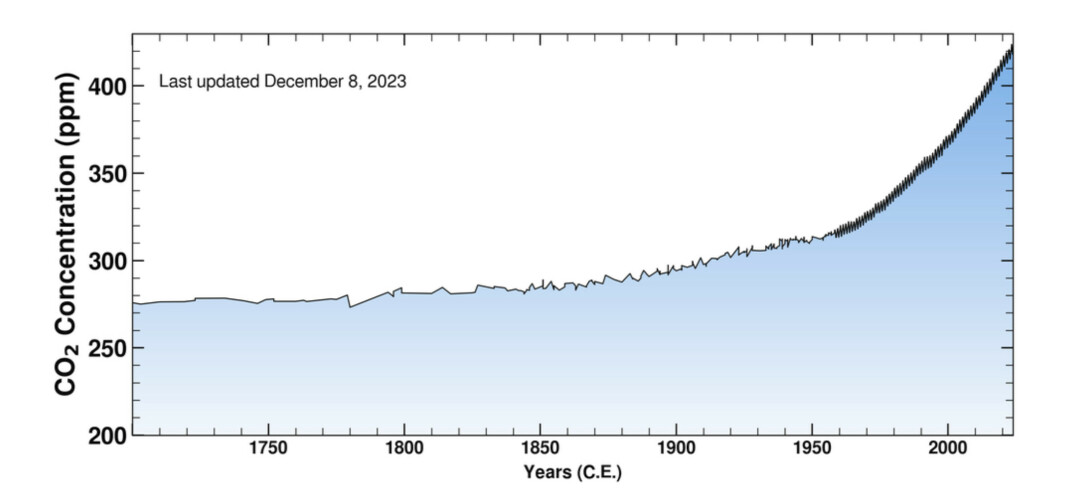News & Articles
Browse all content by date.
 There are two significant climate stories in the news. CBS News shared a story from the United Nations Development Programme and Climate Impact Lab which presented a joint report projecting that more than 70 million people will face increased threats from sea level rise around the world. And in the U.S., more than 260,000 Americans will be at risk of increased flooding over the next 20 years, and that number could increase by 500% before the end of the century.
There are two significant climate stories in the news. CBS News shared a story from the United Nations Development Programme and Climate Impact Lab which presented a joint report projecting that more than 70 million people will face increased threats from sea level rise around the world. And in the U.S., more than 260,000 Americans will be at risk of increased flooding over the next 20 years, and that number could increase by 500% before the end of the century.
Another story on the Common Dreams and Truthout websites reported that a study by the Cenozoic CO2 Proxy Integration Project stated that atmospheric carbon dioxide levels are now at the highest level in the last 14 million years. The CO2 levels have reached 419 parts per million (ppm) as compared to 280 ppm at the beginning of industrial development.
Looking back over the past year, there have been a number of alarming and confusing climate events from around the world. Alarming because these events are happening sooner and are more disruptive than we had expected even a few years ago. And definitely confusing because it's difficult to determine the immediate and long-range impacts of climate change on the planet, cities and our neighborhoods. We are already hearing from various scientific and climate organizations that there is a higher probability that we will surpass the 1.5 degree Celsius mark that we set for global temperatures at the Paris Agreement. There's also studies indicating that the surface temperatures of the oceans are hitting new highs.
As we prepare ourselves for a new year, this may be a good time to refrain from immediately declaring any new resolutions but to reflect upon what has taken place around the planet, and explore what we have learned from what we've seen and experienced over the past twelve months. If we don't do this, then how do we know where we actually are at the end of 2023? And if we aren't committed to doing this, then how do we know where we're going in 2024?
Here, in Duluth, we have been inundated with a series of climate news stories and reports. We've been told that we will experience more droughts and extreme weather events, that there are microplastics and algae blooms in a warming Lake Superior and a variety of tree species are dying off. Also, the average annual temperatures could rise between two and four degrees over the next 50 years.
In this climate emergency, will we choose community or chaos? To embrace a greater sense of community, will we reach out and bring everyone to the table in hopefully finding our common ground to address and adapt to climate change? Or will we unequivocally create more chaos by resisting or refusing to acknowledge and accept the inevitable?
In his book Where Do We Go From Here: Chaos Or Community? Martin Luther King Jr. wrote about the struggles of the civil rights movement. Published in 1967, a year before his assassination, King opens the book with the signing of the 1965 Voting Rights Act and the often violent reaction to this movement. Within a year after the signing, civil rights marchers in the suburbs of Chicago were met with stones, bottles and Nazi flags while elections in southern states were “witches brews of bigotry, prejudice, half-truths and whole lies.” King talked about “the stiffening of white resistance.”
In reflecting upon the history of the civil rights movement in our country, I find myself wondering what's going to happen to our collective efforts as well as the local and global movements to prepare and proactively respond to this climate emergency and the growing signs of climate injustice around the world.
Where do we go from here? We organize more climate education initiatives in our schools and neighborhoods. We establish support programs for young people who are experiencing climate anxiety and depression. We aggressively engage and enlist community leaders and activists who serve our most vulnerable populations in the city and region. We create an alternative business council for entrepreneurs and corporations who want to become more sustainable and environmentally responsible. We immediately establish a climate council for Duluth.
| Tweet |


